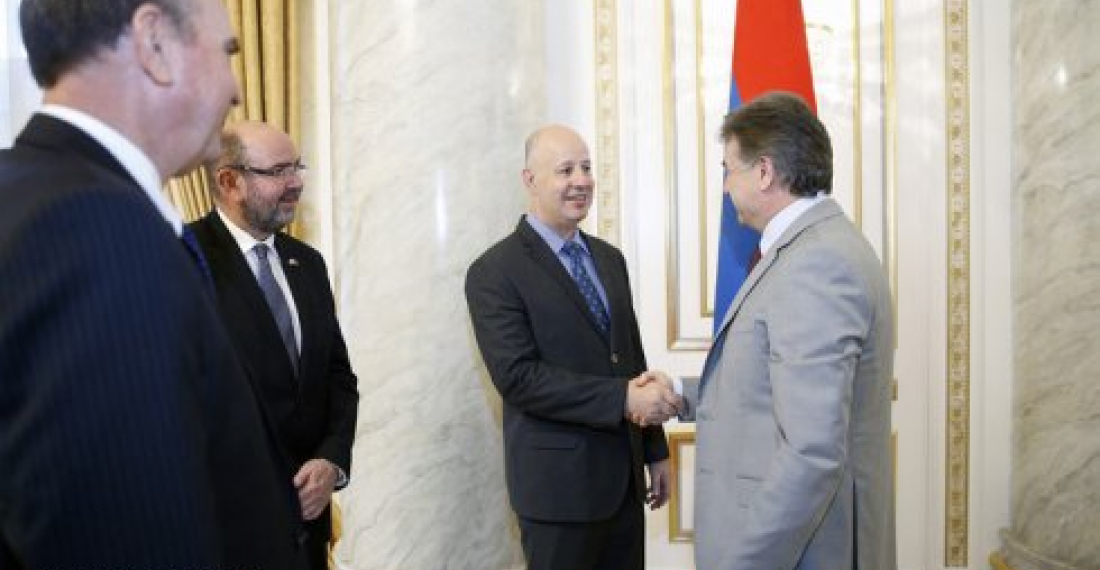Armenian Prime Minister Karen Karapetyan on Wednesday (26 July) received in the Government Office in Yerevan the visiting Israeli delegation led by the Minister of Regional Cooperation, Zakhi Hanegbi, who is in Armenia on an official visit.
Welcoming the delegation Prime Minister Karapetyan noted that Armenia is interested in the development of cooperation with Israel, especially in the activation of economic ties. The head of the Armenian government considered positive the recent launch of the Armenia-Israel direct flights.
The website of the Armenian Prime Minister reported that the Israeli Minister assured his host of Israel's readiness to deepen relations with Armenia. "Zakhi Hanegbi noted that the purpose of his visit is to identify the areas of mutually beneficial cooperation in economy, information technologies, tourism, trade, agriculture as a result of discussions with Armenian partners", the website stated.
With reference to the reforms carried out under the program of the Armenian government, Prime Minister Karapetyan said that the main goal is to increase effectiveness in all spheres.
Israel has traditionally maintained very friendly relations with Armenia's rival, Azerbaijan and is one of the country's main arms suppliers. The visit of the Israeli Minister is one of the highest level contacts between Armenia and Israel in recent times, and is seen as an important step in the development of relations between the two countries. Israel has maintained a close interest in the caucasus region since the 1990's. Georgian Prime Minister, Giorgi Kvirikashvili earlier this week visited Jerusalmen, where he met with Prime Minister netanyahu and other Israeli government leaders.
source: commonspace.eu, with the press service of the Government of Armenia and other agencies.
photo: Armenian Prime Minister Karen Karapetyan welcoming the Israeli Minister for Regional co-operation, Zakhi Hanegbi at the Government building in Yerevan on 26 July 2016 (picture courtesy of the press service of the government of Armenia.






